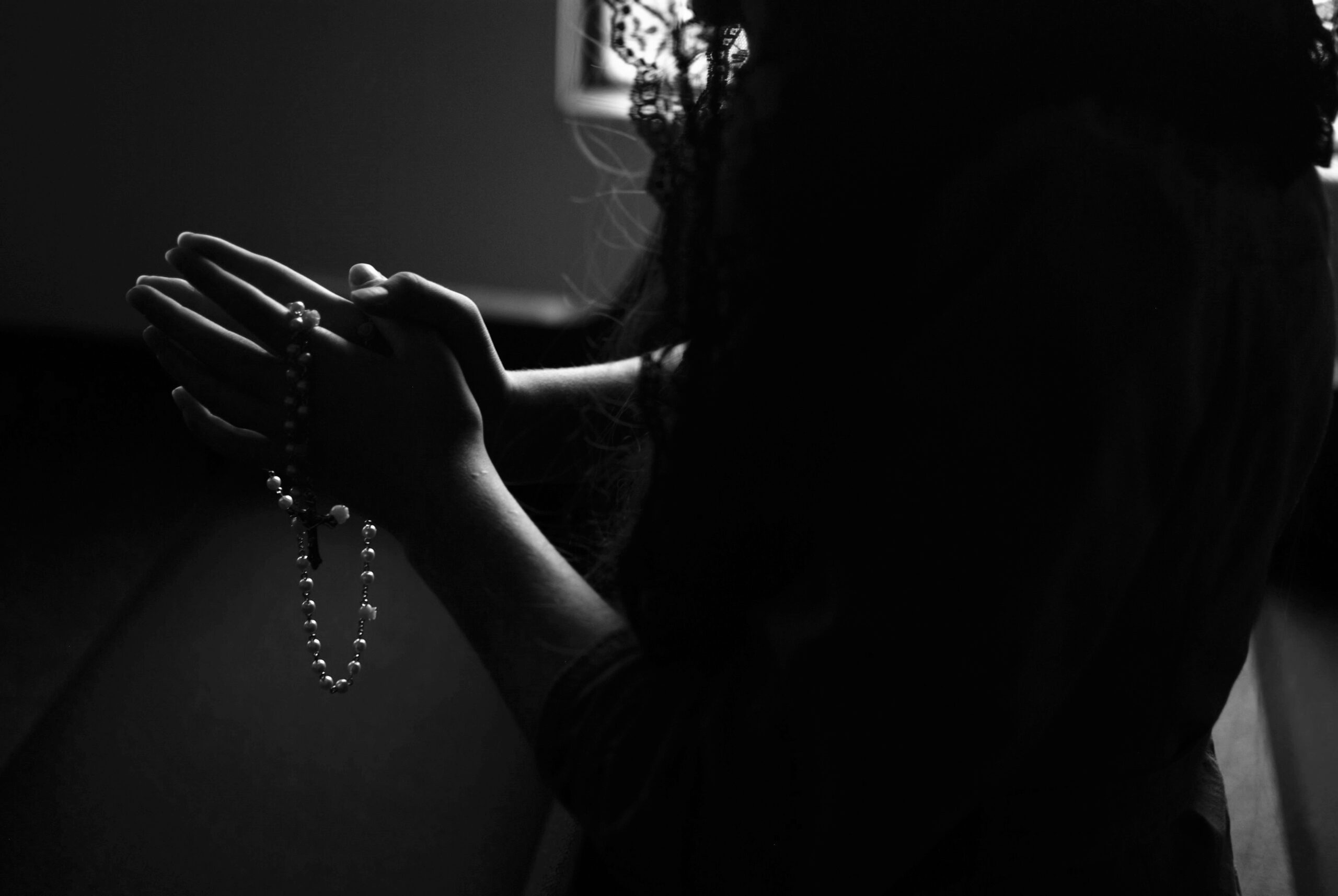Religion: The Guardian of Patriarchy and Gender Inequality

|
Getting your Trinity Audio player ready...
|
Religion is often seen as a force for good, providing moral guidance, community, and spiritual connection. However, it’s important to reflect on whether this institution, associated with virtues, often contributes to the oppression of women. Throughout history, religious doctrines have been used to justify gender inequality, reinforce patriarchy, and limit women’s rights.
A typical instance of religion being used to justify male violence against women is how Muslim male students in Sokoto stoned their peer, Deborah Samuel Yakubu, to death. The men carried out the brutal act on May 12, 2022, citing “blasphemy against Islam” as their reason for the murder.
Religion is also often used as a tool to uphold patriarchy and perpetuate misogyny. Patriarchy refers to a system of social relations in which there is gender inequality between socially defined men and women. It is a system of relationships, beliefs, and values embedded in political, social, and economic systems that structure gender inequality between men and women where attributes seen as “feminine” or pertaining to women are undervalued, while attributes regarded as “masculine” or pertaining to men are privileged.
In patriarchal societies, men typically occupy positions of authority in government, business, family structures, and other key institutions, while women experience varying degrees of subordination. It is a setup created by men, for men, and designed to benefit men. Within this system, women are expected to be obedient and subservient. It perpetuates stereotypes that reinforce traditional gender roles where men are frequently depicted as strong and decisive, while women may be portrayed in more passive or supportive roles.
Patriarchy poses significant harm to women, and numerous factors support and enable its existence, including culture and tradition. However, one often overlooked contributor is religion. All the world’s religions have different modes of worship and diverse doctrines that guide their beliefs and practices. Yet, despite these differences, they largely share one common thread: the subordination of women to men.
Here are instances of passages from a few religions that illustrate the subordination of women.
Christianity
1. 1 Corinthians 14:34-35: “Women should remain silent in the churches. They are not allowed to speak.”
2. 1 Timothy 2:11-12: “A woman should learn in quietness and full submission. I do not permit a woman to teach or to assume authority over a man.”
3. Catholic Church’s male-only priesthood and prohibition on women becoming bishops.
Islam
1. Quran 4:34: “Men are the protectors and maintainers of women because Allah has made one of them to excel the other.”
2. Hadiths (e.g., Bukhari 2:28) emphasising women’s obedience to husbands.
3. Sharia law’s restrictions on women’s rights (e.g., dress codes, travel limitations).
Hinduism
1. Manusmriti 5:147-148: “A woman’s duty is to obey her husband and please him.”
2. Laws of Manu 9:3: “A woman shall not perform the daily rituals without her husband’s permission.”
3. Restrictions on women’s access to temples and priestly roles.
Judaism (Orthodox)
1. Talmud, Kiddushin 29a: “A woman’s wisdom is only in the spindle.”
2. Separate seating for men and women in synagogues (mechitza).
3. Limited roles for women in religious leadership.
Buddhism
1. Theravada Buddhism’s Eight Garudhammas: rules restricting nuns’ autonomy.
2. Tibetan Buddhism’s limited recognition of female lamas.
3. Exclusion of women from some monastic communities.
Sikhism
1. Some interpretations of Guru Granth Sahib emphasise women’s domestic roles.
2. Historical restrictions on women’s participation in Sikh leadership.
Many of these passages reinforce the notion that men and women are not equal, thereby emphasising the differences between the genders and imposing rigid roles under the guise of divine will. This dynamic elevates the male gender to a position of superiority while conditioning women to accept their status as the “weaker” gender, ultimately perpetuating gender inequality.
Despite the unfairness to women, when they question the patriarchal system, religion is often used to make these rules seem unquestionable, claiming that they are what God intended. Challenging these norms feels like challenging God’s will.
Although practised by both genders, religion also leads men to believe they can act without accountability toward women, further providing safety and privilege primarily to men. Typical examples can be found in the excuses often used when men perpetuate violence against women and girls, such as:
1. Rape: “She was dressed improperly.”
2. Domestic violence: “She didn’t submit enough.”
3. Infertility: “She’s being punished by God.”
4. Sex trafficking: “She’s morally corrupt.”
These views contribute to harmful attitudes and practices by promoting victim-blaming and shaming, perpetuating gender-based violence, undermining women’s autonomy, and overlooking systemic injustices.
Religion further conditions men to prioritise their faith traditions over humanity and compassion, particularly concerning women.
A typical example is how a Christian man declared that he would rape a woman if his God deemed so. “I would rape if God commanded me to,” @TenryoTheLight tweeted. This declaration is one of the many ways religious psychosis manifests in men, encouraging them to inflict harm and violence on women and use religion as an excuse to justify their actions.
It becomes clear that religion typically does not favour women, only empowering them in contexts that relate to men, such as marriage. In many religious contexts, women are also often encouraged to pray for their husbands, even in the face of infidelity or physical abuse. They are taught to lower their voices and submit despite the understanding that partnership should be a cornerstone of healthy relationships. Additionally, many religions oppose divorce, which ties the hands of women who are suffering in abusive situations and may wish to leave.
The divine figure in many religions, often portrayed as male, contradicts the notion of a neutral and spirit-based deity. Religious texts and stories mostly feature male gods, prophets, saints, and heroes. They are written and interpreted by men, and these texts contain passages or teachings that reinforce patriarchal values, prescribing distinct roles for men and women and usually assigning men leadership roles and women more subordinate positions. This reinforces the idea that a woman’s worth and identity are primarily defined through her relationship with a man rather than her individuality.
Religion further portrays women as property, defining their worth primarily through marriage and childbearing while conditioning them to desire these roles. It promotes a purity culture, imposing strict standards on women while holding men to different expectations. Women are taught that their purity is for men, pushing the notion that their value is tied to their chastity. Instead of holding men accountable for their actions, religious teachings and scriptures frequently support and reinforce these notions, protecting men while punishing women. This grooming of girls and women perpetuates a cycle of inequality and reinforces harmful gender dynamics.
With the list unexhaustive of how religion harms women and contributes to global inequality and an unsustainable world, women need to deconstruct how aligning with the doctrine harms them critically. This deconstruction would include reflecting on how religion does not serve humanity, perpetuates unequal gender dynamics and finding moral guidelines outside of dogma beliefs. Often, one’s conscience is enough to know right from wrong, a person’s hard work is enough to grant one’s success, and one’s social connection is adequate to support one through tough times.






